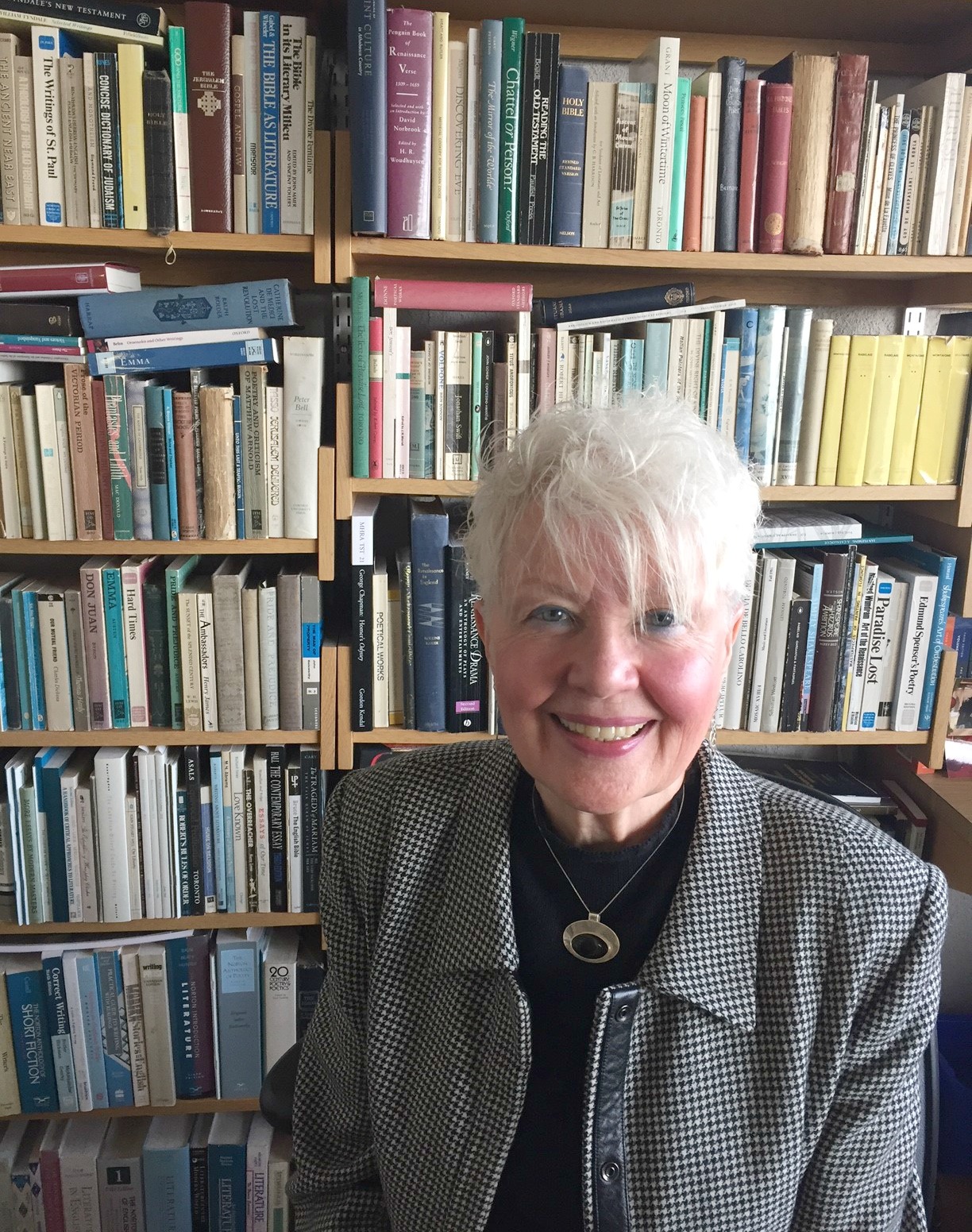
Pat Demers, photo by Donna McKinnon
When opportunity knocks, English and Film studies professorPat Demers opens the door. A Fellow of Royal Society of Canada (and its first female president, from 2005 to 2007), the literary enthusiast cites serendipity as a major influence in a scholarly life. In 2016 she was honoured with an Order of Canada, but as Demers herself notes, serendipity is utterly meaningless if it is answered with anything but yes.
"I was asked to do things and, maybe a little foolishly at times but I did say yes," she laughs. "We have to be alive and alert to influences all around us that can take us in different directions."
At the beginning of her career, Edmonton's river valley and wide open spaces influenced the Hamilton-raised Demers' decision to live out west, but it was the opportunities afforded her at the University of Alberta that convinced her to stay and build a research and teaching career that has, at times, included Elizabethan and Jacobean drama, the King James Bible, 19th century children's literature and contemporary Canadian women's writing.
"I grew up in Ontario, in big cities, and when I return to visit my family, my sisters in particular, I realize how cramped everything is. Here, there's a sense of physical space, but there is also a sense of intellectual space that I was being offered - an opportunity to experiment, to try, to fail and pick myself up and try again."
Demers says that when she was initially offered a children's literature class, she had no previous experience other than a love of the genre. "Parachuted in" because another professor had been seconded elsewhere, she learned the subject and has gone on to publish a number of scholarly works on the subject, including a fourth edition ofFrom Instruction to Delight: An Anthology of Children's Literature to 1850 (Oxford University Press, 2016).
When Demers came across a piece of Cree syllabic script, it took her down the "rabbit hole" of the Cree language, which resulted in a University of Alberta Press publication,The Beginning of Print Culture in Athabasca Country, in collaboration with Faculty of Native Studies instructor Dorothy Thunder and a former student of Thunder's, Naomi McIlwraith.
This deep, lifelong curiosity and willingness to learn fueled many of the decisions that, more often than not, steered Demers into uncharted territory. As the first female president of the Royal Society of Canada, Demers faced many challenges, but she was more than up to it. "It was, and remains in some sense a patriarchal preserve," she says. "I faced skepticism and a kind of unwillingness to recognize that there could be a bilingual female from the West who was not in science!"
Other national roles have included Vice-President of the Social Sciences and Humanities Research Council of Canada (SSHRC) from 1998 to 2002, and at the University of Alberta, she has served as Associate Dean of Graduate Studies, Department Chair of English and Film Studies and Interim Director of KIAS (Kule Institute for Advanced Study). She has received the University of Alberta Rutherford Award for Excellence in Undergraduate Teaching, the Arts Faculty Teaching Award, the McCalla Research Professorship Award, and in 2005, Demers was awarded the U of A's highest honour conferred on its faculty members - the University Cup.
Last year's announcement that she had been named aMember of the Order of Canada for her "insightful contributions to the study of early works of English literature and for her service to the academic community" came as a complete surprise to Demers. "It really baffled me," she says. "I thought, well, I guess it's really a tribute to the kind of opportunities I've been given at the U of A to do different things."
Demers says that the humanities and their "profound commitment to ethical reading," which she defines as reading that makes us step outside our comfort zone and received opinions, is more necessary than ever. "When we have irrational acts being committed across the globe and sometimes closer to home, I think it's part of the responsibility we have as academics, as intellectuals, to instill that willingness to see beyond an appearance; to empathize." she says. "And that's not easy. I'm always heartened by the ability of students to provide original and provocative comments that spark a re-examination."
A generational difference that Demers finds concerning in her students, particularly the undergraduates, is their unwillingness to avail themselves of libraries and archives; favouring online research instead. "I try to disabuse them of that," she says, adding that libraries are the "heartbeat of the humanities." Her passion for such is palpable, and indeed, her office - which looks out on her beloved river valley and smells richly of well-loved volumes and cherished works of literature - is itself, a kind of archive. "Yeah, libraries do it for me," she says. "It's an addiction I never want to be cured of. When I'm in a new city, if there's a university library and a museum or an archive connected to it, well, it makes so much more sense than a beach!"
Still passionate about teaching, Demers says that she has come a long way from being so nervous "you could hear my knees knocking" to a classroom experience that allows for robust debate. "[When I started], I had everything prepared, but then I realized that only when you put the script aside do you really start to get into the material. There were bright students when I started and there are still bright students. My job is to bring them out, make them realize that they have a lot to offer."
Fittingly, her choice of metaphor for what lies ahead is "an open book."
"As you can tell, I'm not fully scheduled about the future," she laughs. "I think it's just a temperament of being alert. There wasn't, and there still isn't, a master game plan!"